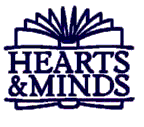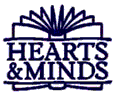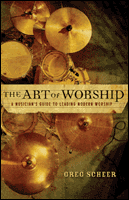
The new
Leonard Sweet book is so much fun, packed with so much interesting information---how does he find all these eccentric statistics and factoids, anyway? ---and important cultural analysis that I really, really want to tell you all about it. I understand that for some who do very heavy postmodern studies (pro or con) his popular level books aren’t exactly what you may need. Fine. But for most of us, these popular books are jam-packed with provocative sentences, winsome Christian insight, innovative connections between faith and culture, and a surprisingly fun reminder of core convictions of the Christian faith----stuff like our passion for Jesus, God’s ability to use our broken lives, the goodness of creation, the importance of beauty, the way God’s Spirit calls us to participate in authentic community, how love can triumph…basic good stuff. Sweet stuff, if I might say so.
To tell you about his new book
The Gospel According To Starbucks I have to make a disclaimer or two. In fact, I will write about my critical concerns at length, below, after my enthusiastic promotional overview here. I do, in fact, have some concerns, but the main reason I want to note them is so that you don’t resist getting this book because you share these same concerns. Len once advised me, “Byron, you can do ministry in the world we’ve got, or the world you wished we had.” Uh-huh. This doesn’t mean, of course, that we shouldn’t be discerningly critical, but that we should at least look at things the way they are. He wasn’t trying to shut down my discernment of how best to engage the culture; he's very interested in that question—in fact, he edited a great book with five different participants in conversation (from Orthodox writer Frederica Mathews-Green to Mosaic dream-caster, Erwin Raphael McManus; from Straight Arrow Calvinist Michael Horton to emergent guru Brian McLaren. In the middle of them all is the ever-thoughtful and exceptionally balanced Andy Crouch, who at the time edited the supercool and very substantive
re:generation quarterly. It is called
The Church in Emerging Culture: Five Views.) So Sweet isn’t shallow or a one-note tune. And I suppose I think of that story now as my criticisms below are of that sort that authors find perplexing (“Why did he complain about what I didn’t say—or review the book I didn’t write” some authors understandably ask. “If you wanted to say all that about the topic, why didn’t you write such a book,” one author told me when I chided him for not doing the book I wished he had. Fair enough.) I am so enjoying this new Starbucks book that is so clever, passionate, and informative that I don’t want anybody to dismiss it casually. It is worth reading, even if you’ve heard Sweet’s song(s) before. Or even if you don’t like Starbucks.
The Gospel According To Starbucks: Living Life With a Grande Passion (Waterbrook; $13.99) is a fun and handsome paperback that basically uses Starbucks as an example of the postmodern shift to what Sweet has famously coined as EPIC. This stands for Experiential, Participatory, Image-Rich and Communal. And he makes the case pretty well, at least a superficial one, that Starbucks is a leading edge new business with an EPIC perspective, offering folks not so much a product, but an experience, not just an item you get, but one which becomes an inter-active experience, etc. This EPIC handle is really useful, and I think goes a long way in helping us appreciate very recent trends (like, say, Reality TV or E-bay.Or the legendary customer-loyality of Starbuck's patrons.)
As I’ve implied, it doesn’t really matter if you like Starbucks (more on that below) and it doesn’t even matter if you enjoy coffee. The point is that this one cultural phenomenon, an unavoidable one, has been nicely studied and plumbed as a case-in-point of the postmodern way of being in the world. He uses it as a preacher does, as a springboard. So, to be clear, the book is less about Starbucks and more about our EPIC culture (and how, sometimes, the church is anything but.)
For instance, in a truly brilliant section he reports on the decline of standard athletics and the rise of participatory sports. (Ahh, with more snowboards being bought than ball gloves, what are we to think about the great American pastime? Remember that guy—a huge Detroit baseball fan—who infamously leaned over the outfield wall and messed up an important play in a big play-off game for the Tigers? As only Sweet can and would, he makes this guy into an icon of participatory trends, saying that the writing is on the wall, so to speak. People don’t go to games just to sit and watch them any more (think of how tailgating has become such a big deal, or, better, how about this trend of painting your body? Whew!) That more kids play video game baseball than watch it is very important. (Sweet observes that the computer game industry is much larger than, say, Hollywood, yet there is little Christian analysis of it.) That NASCAR has mics inside the racecars so fans can "be there" becomes a matter of great cultural importance in Sweet's hands, and it is an important little section. If you don’t quite see where he is going with all this, you
have to get this book. If you like these kind of discernment exercises about “reading” cultural texts (the decline of baseball and the rise of extreme sports, say) than you will just love this book, jam-packed as it is with episodes and examples of just such provocative stuff. Either way, I think it is a great little easy read, loaded with wit and insight.
Sweet is clearly on the pomo edge of things, as he has been for years, in part because he insists that Jesus Christ is not a proposition, but a Person, and our knowledge—
yada, yada, yada, is the intimate Hebrew word of "knowing," remember---is a relationship, not mere intellectual assent. That writers and theologians as diverse as John Calvin and Jonathan Edwards, or John Wesley and A.W. Tozer all said similar things may remind us that Sweet’s wholistic, post-Enlightenment epistemology isn’t heresy. It just seems a bit “out there” when he unpacks some of the implications of taking a multi-sensory, non-reductionistic, various-ways-of-knowing, whole-life approach to Christian discipleship, explaining it not only in terms of Bible texts, but by way of cultural icons like
American Idol or iPods, or our love for the frappachino.
Sweet
is a coffee fanatic, and he does love Starbucks. He has some good reflections on their in-house lingo, their excellence in barista training, their décor, their unorthodox marketing plans, and such. But, again, this book (it seems to me) isn’t really saying that the local church should mimic the franchise and do “Starbucks” services. Come on, left-brain literalists, give him a bit of credit for his
imagery here…work with him, let the book tickle your fancy, your spiritual taste buds, your imagination. He isn’t saying we should do away with ordinary church and classic worship and have Zen meetings down at the espresso bar. But he is saying that Starbucks, and other emerging, new businesses, are onto something. They both reflect and contribute to the cultural zeitgeist, and we would be wise, at least, to pay attention. And, if Sweet is even partway right, we have some learning to do.
It isn’t the main point, hardly even a minor point. But I suppose it is all right to say it. At the very least, we can learn that a good quality coffee roast is important to many of us. Churches, fellowship groups and Christian retreat centers could serve up a better cup o' java, couldn't we? And that may, at least, be a start. Read this book and see what you think. As the subtitle puts it, he invites us to live with a grande passion. I love it!
The Gospel According to Starbucks: Living Life With a Grande Passion
Leonard Sweet (Waterbrook) $13.99
****
Okay, here are my concerns. I have already indicated that I don’t think this book is really about Starbucks, as such. It merely uses this popular business and it’s unique vibe as a springboard for his EPIC spiel, which I like. So whether or not you like Starbucks is really beside the point. One doesn’t really have to be married, you know, to appreciate a book on the “bride of Christ” imagery from the New Testament. One need not be a card-caring pacifist to study a good book on the Biblical principles of peacemaking, perhaps learning from contemporary examples of those who have worked for reconciliation. It doesn’t matter much whether one likes U2, say, or 24 or Tolkein. The books that have explored the spiritual themes in these works are fabulous and can be appreciated in their own right. And, if you don’t know much about those cultural artifacts, maybe that is all the more reason to read about them. So, again, I commend this book with vigor whether you like coffee or Starbucks or not.
But, Sweet does say some pretty positive things about the Starbucks corporation, their founder and their shops. He does hold up their coffee shops in an exemplary manner, indicating that we should celebrate their successes and affirm their insights and emulate their practices. And so I want to get on record a few quick (Light) Notes. (Sorry, little in-house Starbucks joke, there.)
First, while I do not boycott Starbucks myself, I appreciate that some think that we should only support independent shops. [Just today, I drove past a Starbucks while out of town to buy from an overpriced indie shop, as a matter of principle, and had a righteous, if sub-standard brew.] As one who waxes angrily eloquent at the mere mention of Amazon, and has testified in public hearings about the expansion of a local Wal-Mart, I understand deeply the concern about the invasion of out-of-town chains that may hurt smaller, local businesses. (You’ve seen You’ve Got Mail haven’t you?!) Big box stores are nearly iconic of modernist applications, though, with mass-marketed “product” selected by somebody somewhere else, based more on "numbers" than quality, displayed in slick, big, ways, with little earnest charm and sometimes, not even much knowledge or care. (Barnes and McNoble may have sophisticated literary selections, but I have had some very frustrating conversations with staff who, to say it nicely, don’t seem to be passionate about books or bookselling.) I am not sure that Starbucks is the same as Amazon (a faceless, mostly un-normative business, I think) or the big box retailers, since they do nurture a local touch, are passionate about their product, and, as Sweet observes, attempt to nurture participatory community in each locale. Still, I am very concerned that Sweet does not mention this concern, and wonder how I would feel about the book if I owned an indie coffee shop. Or, if he wrote a book about the (imagined) glories of Borders. I’d be irked. Again, The Gospel According to Starbucks is a call to rich and sensory and communally experienced faith, using the never-ending wit of Sweet’s over-caffeinated brain, by way of a quickie look at the cultural zeitgeist that the commercial success of a place like Starbucks signifies. It isn’t a study of the economics, stewardship, justice or appropriateness of national chain franchises entering local economies. So I’m willing to cut him a break on this and am happy to promote the book, as a way to reflect on that which the book is actually about---postmodern sensibilities, EPIC discipleship, full-on Christian passion and purpose. I think it is nonetheless an oversight that he did not at least approach this matter, and he should have at least broached the subject.
Secondly and closely related, is the whole movement that some have called the search for “third places.” I will blog, eventually, on the Great Good Place book, and my friend Larry Bourgeois, a renowned coffee Master himself, who has written about his coffee-house/meeting place in the sequel, Celebrating the Great Good Place, and on the need for real social places, safe havens that truly foster community and hold the possibility of cultural restoration. Sweet himself has written nicely about his vision of a “Soul Café” in his book with that title, and understands the need for retail places that promote conviviality, community, local responsibility. He used to run a retail shop that only sold products that had a "story" and were made by real folks, with some connection to somewhere particular. To the extent that Starbucks promotes their take-out attitude, paper cups and drive-through windows (!) it is a stretch to imagine that they are deepening real care, celebrating local culture or even helping people meet each other. Although Sweet’s call to connectedness and community in his EPIC acronym is right on, the reality is that Starbucks may be deconstructing local neighborhoods, dumbing down the practices of serious latte culture, and foisting on us an overpriced experience of haste, hurry, consumerism and disposability.
Thirdly, the fair-trade movement is one that Sweet has promoted, and he brings it up here. Earlier books addressed these fundamental justice concerns, even his great, older book on the Holy Spirit. His groundbreaking Soul Tsunami had excellent chapters on the green movement and global justice issues. However, there is some debate about how “fair-trade” Starbucks really is. They claim they pay above the industry average, and I have no reason to disbelieve them. They have in recent months increased some of their publicity (at least around here) about how they support bio-regions, and they do a bit of geographic teaching in some of their lovely brochures. Still, those that know me know that I’ve embarrassed myself and my baristas more than once with my complaint that we ought not to have to choose between helping the workers or helping the Earth. To have to choose between a bag of the earth-friendly shade grown, or a bag of the organic (good for consumer and farmer) or a bag of their fair-trade just isn’t right. Being such a large, lucrative, and influential staple of the worldwide coffee culture, they should be leading the way towards being entirely certified fair trade. We should be grateful that Sweet talks about all of this in the book, affirms Starbuck’s policy efforts and chides them (in more than one particularly pointed sentence) about not promoting the idea of fairly traded goods.
My favorite coffee bean company, by the way, is Peace Coffee, which we buy at the local Farmer’s Market. They specialize in dark roasts, and are all shade-grown, all organic and all certifiably fair trade. And they have that nifty, Biblical name. There are others, and we are grateful for missionaries, justice activists and denominational church offices that make fully fair trade certified blends available. Before you jump too fully on the Starbucks train, check out other local, vibrant, indigenous shops, working with them to offer fairly-traded products to your locale.
For one friend’s story of starting up a coffee shop (in Beaver Falls, PA) that has struggled admirably to attend to these matters, see “Working With Beans” in Comment.
One of the best brief articles, with helpful resources on the agricultural impact of coffee growing, see this from our friends at Catapult, “Fair-Trade Coffee Is For the Birds”
So, having hopefully “head off at the pass” any closed-minded bias against my suggestion that you should read a book with Starbucks in the title, duly noting these important concerns, we invite you to think more deeply about your own economic patterns and purchasing choices, and buy The Gospel According to Starbucks from some independently owned, personally-caring booksellers you may happen to know. We think it will be a fun book for small groups or book clubs and will help you not only deepen your cultural awareness, but may help you embrace an EPIC faith in the One who is the Living Truth. Which is Len’s biggest passion, giving folks a taste of the goodness of the gospel of the Kingdom of God.














